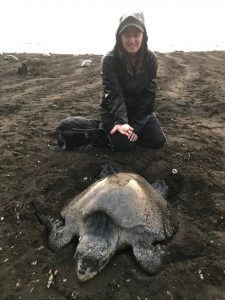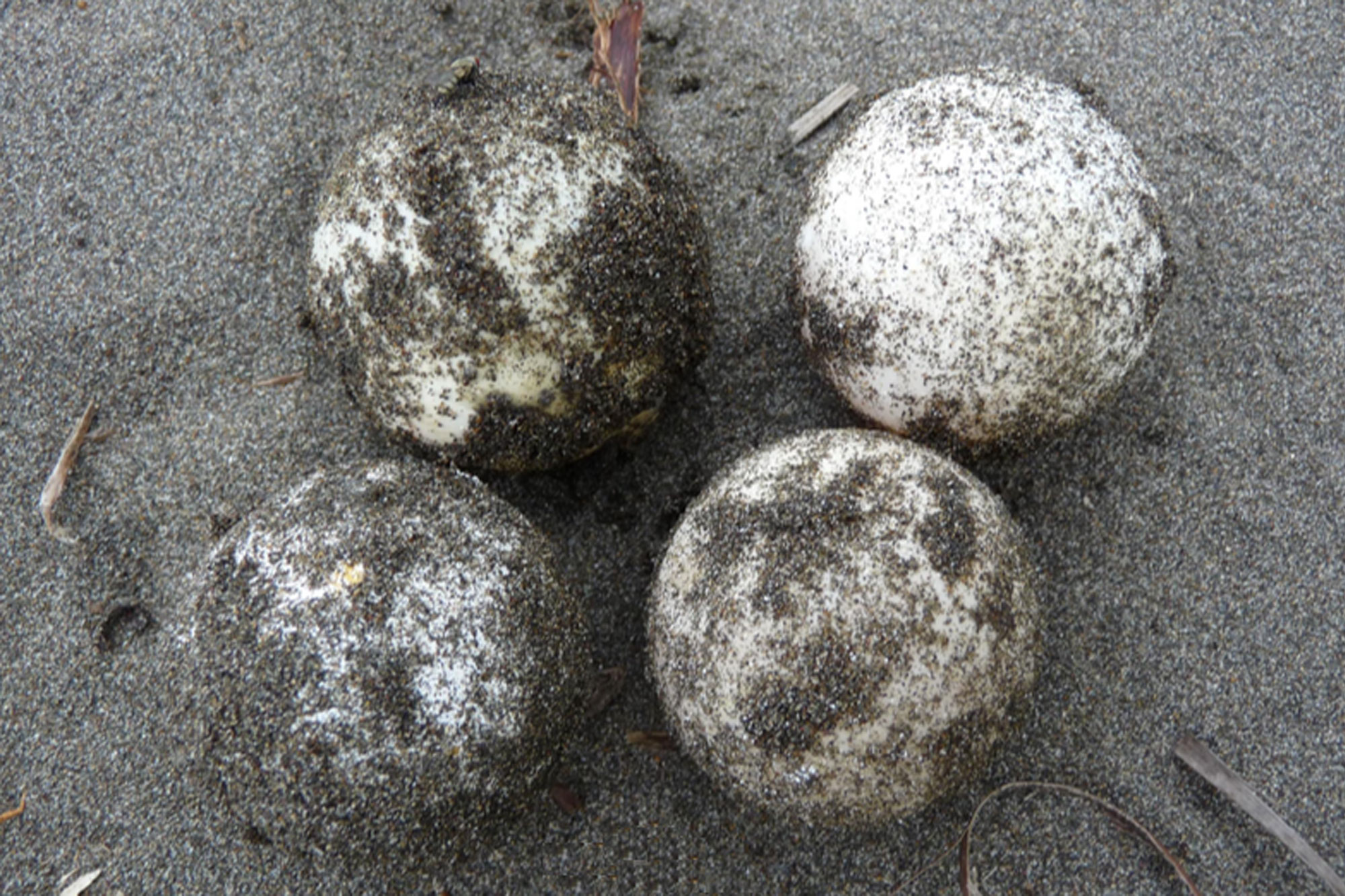A field study led by Dr Helen Pheasey of the Durrell Institute of Conservation and Ecology (DICE) has achieved worldwide media coverage.
The research, which explores the illegal trade of sea turtles by using 3D-printed, GPS-enabled decoy eggs, was carried out in Costa Rica alongside NGO Paso Pacifico and has so far been covered by several hundred regional and national news outlets across the UK, Europe, USA, Canada, New Zealand and Japan. The story has also been picked up by science news publications.
The news outlets that covered the research include: The Guardian, The Telegraph, The Independent, I News, New Scientist, Wired, The Economist, Vice, IFLScience and The National Post (Canada). Dr Pheasey has also taken part in a number of broadcast interviews including BBC South East Today, BBC Radio Kent, NPR and Reuters.
Helen said, “I am delighted with how our study has been received in the media. Our research offers a real opportunity to address the illegal trade of sea turtle eggs, focus demand-reduction campaigns and is a step closer to developing a law enforcement tool that enables a proactive approach to curtailing wildlife crime.”


